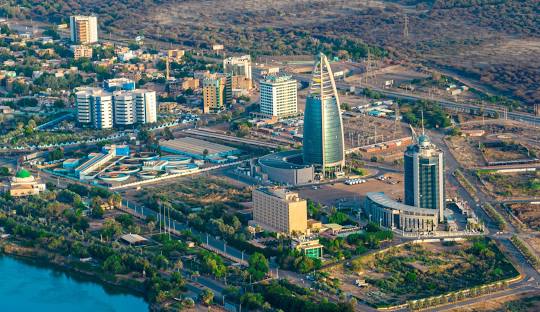Khartoum, Sudan
🌊 Khartoum, Sudan
“Where Two Niles Meet: Desert Majesty & Forgotten Civilizations”
🗺️ Overview
Khartoum, the capital of Sudan, sits where the Blue Nile and White Nile merge — a geographical wonder symbolic of the country's rich but complex identity. Despite political unrest and economic hardship, Khartoum remains a fascinating destination for intrepid travelers, archaeologists, and culture seekers. With millennia-old pyramids, a welcoming population, and spiritual rituals like the Sufi dervish dances, the city offers raw authenticity unmatched in much of Africa.
Fly All Over Rating: 6.3/10
✔️ Nile confluence and ancient ruins
✔️ Warm hospitality and low tourism footprint
❌ Ongoing political instability
❌ Limited infrastructure and services
✈️ Getting There & Around
-
Airport: Khartoum International Airport (KRT)
-
Visa: Required for most visitors (obtain before travel)
-
Transport:
-
Taxis and minivans common; Uber alternatives not available
-
Nile boats for short scenic trips
-
Roads can be chaotic, but manageable
-
🏞️ Top Attractions
🌊 1. Nile Confluence Point
Watch the Blue and White Nile blend — a sacred and historic spot with riverside cafés and local activity.
🎭 2. Omdurman’s Sufi Dervish Ceremony (Fridays)
Whirling dances and spiritual chants near Hamed al-Nil Tomb – deeply moving and culturally immersive.
🏺 3. Sudan National Museum
Fascinating ancient Nubian artifacts, mummies, and reconstructed temples. A must for history lovers.
🏛️ 4. Tuti Island
A peaceful island at the Nile junction – green, quiet, and great for walking or biking.
🏜️ 5. Meroë Pyramids (~4 hours away)
Day trip to 2,000-year-old pyramids in the desert — less visited than Egypt, but stunningly preserved.
🍽️ What to Eat
Local Cuisine
-
Ful medames – Slow-cooked fava beans, Sudan’s staple
-
Ta’amiya (Sudanese falafel) – Crunchier than Egyptian versions
-
Kisra – Sorghum flatbread with stews
-
Shai (spiced tea) – Popular street-side drink
Dining Picks
-
Assaha Restaurant – Middle Eastern-Sudanese fusion
-
Amarat Café – Great views and shisha
-
Solitaire Restaurant – Clean and expat-friendly option
🏨 Where to Stay
💰 Budget
-
Bougainvilla Guest House – Cozy and affordable
-
Kanon Hotel – Safe, with modern amenities
🛏️ Mid-Range
-
Acropole Hotel – Historic, run by Greek expats, very traveler-friendly
-
Corinthia Hotel Khartoum – The “Gaddafi Egg,” iconic and luxurious by local standards
🛍️ Souvenirs & Culture
-
Gold and silver jewelry (Nubian style)
-
Traditional Sudanese fabrics
-
Hand-carved wooden items
-
Spices and incense (sandalwood, myrrh)
📅 Best Time to Visit
-
November to February – Cooler, dry season
-
Avoid May to August due to extreme heat (40°C+)
🛡️ Travel Tips & Safety
-
Political unrest is a concern – check advisories before travel
-
Photography: Be cautious, especially near government buildings
-
Modest dress required – especially for women
-
No alcohol – Completely banned due to Islamic law
-
Cash is king – ATMs often unreliable; bring USD
📊 Khartoum Ratings (Out of 10)
| Category | Score | Notes |
|---|---|---|
| Natural Beauty & Scenery | 6.5 | Nile views and desert landscapes |
| Culture & History | 8.2 | Ancient Nubia, Sufi rituals, Islamic architecture |
| Food & Cuisine | 6.4 | Simple but hearty; strong local flavors |
| Affordability | 7.0 | Low cost once in-country |
| Safety & Political Stability | 4.0 | Ongoing instability — research is essential |
| Infrastructure | 5.8 | Patchy but functional for experienced travelers |
| Hospitality | 8.5 | Exceptionally warm and welcoming people |
| Overall Travel Value | 6.3 | Rewarding for cultural adventurers, not for everyone |


